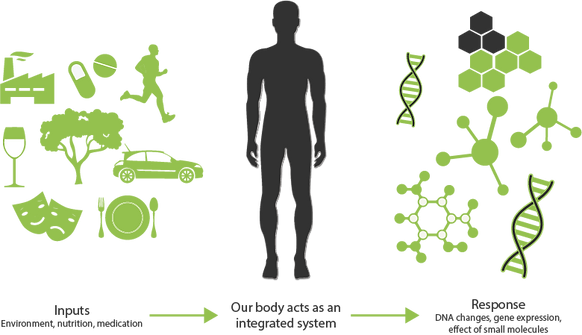THE JOURNEY OF GOOD HEALTH BEGINS AT YOUR CELLULAR LEVEL -
WE ARE PIONEERS IN THE FIELD OF EPIGENETIC

No.776, 9th A Main , 1st Stage Indiranagar , Bangalore -560038
+91-9663955486
+60-169790365

What is Epiegentics
You may have heard the saying… Your genes load the gun, your lifestyle pulls the trigger…

Genes don’t determine your destiny, your lifestyle does that! But understanding your unique genetic makeup will help you live the lifestyle to best support your health.
Even if you have undesirable genetic variations, and we all do, if you eat well, pay attention to your genetic weaknesses and live a healthy lifestyle, those genes may not be actually switched on. The key though is knowing what your unique genetic weaknesses are.
A fairly new field in the Asian countries , the study on Epigenetics has been in the western countries for over two decades .
Epigenetics is a new type of science that is growing in popularity and promise in the scientific world. Epigenetics is the study of cellular and physiological traits, or the external and environmental factors, that turn our genes on and off, and in turn, define how our cells actually read those genes. It works to see the true potential of the human mind, and the cells in our body.
Epigenetics has the potential to change your life by making you happier and healthier, with a greater sense of spiritual well-being.
Your genes play an important role in your health, but so do your behaviors and environment, such as what you eat and how physically active you are. Epigenetics is the study of how your behaviors and environment can cause changes that affect the way your genes work. Unlike genetic changes, epigenetic changes are reversible and do not change your DNA sequence, but they can change how your body reads a DNA sequence.
Are you still with me ??
How Can Your Epigenetics Change?
Your epigenetics change as you age, both as part of normal development and aging and in response to your behaviors and environment.
-
Epigenetics and Development
Epigenetic changes begin before you are born. All your cells have the same genes but look and act differently. As you grow and develop, epigenetics helps determine which function a cell will have, for example, whether it will become a heart cell, nerve cell, or skin cell. -
Epigenetics and Age
Your epigenetics change throughout your life. Your epigenetics at birth is not the same as your epigenetics during childhood or adulthood. -
Epigenetics and Reversibility
Not all epigenetic changes are permanent. Some epigenetic changes can be added or removed in response to changes in behavior or environment.
Epigenetics and Health
Epigenetic changes can affect your health in different ways:
-
Infections
Germs can change your epigenetics to weaken your immune system. This helps the germ survive. -
Cancer
Certain mutations make you more likely to develop cancer. Likewise, some epigenetic changes increase your cancer risk. -
Nutrition During Pregnancy
A pregnant woman’s environment and behavior during pregnancy, such as whether she eats healthy food, can change the baby’s epigenetics. Some of these changes can remain for decades and might make the child more likely to get certain diseases.
Not only the above point , but there are many aspect of our health and life that is linked with our Epigenetics.
Schedule online. It's easy, fast and secure.